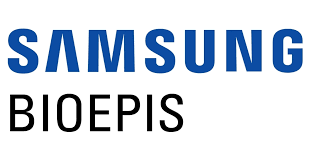
The drug references Herceptin and was previously approved by the Agência Nacional de Vigilância Sanitária in May 2019. Besides Brazil, Ontruzant is currently marketed in Australia, Europe, the United States, Ukraine and Republic of Korea. It received authorizations in Europe and the United States in 2017 and 2019, respectively.
"A Step Closer"
“The launch of our first oncology treatment Ontruzant in Brazil is a step closer to realizing our mission which is to deliver high quality, proven biologic medicines to more people, said Josh Sang Hyun Lee, vice president and commercial strategy team lead, Samsung Bioepis.
Breast cancer is the most common cancer and main cause of death among women in Brazil. There are an estimated 67,000 deaths from this disease each year in Brazil and the number is growing by 2.54% each year, Samsung Bioepis said in a statement.
According to a 2019 market report by McKinsey & Company, the potential scope of Brazil’s biosimilar market ranked second in the world among emerging countries. McKinsey projected a market size of $1.9 billion by 2025 with an annual growth rate of 25% to 30%. That was larger than the projection for India ($1.4 billion; 15%-20% growth), but well short of China’s ($8.1 billion; 20%-25%).
In Brazil, biologics account for less than 5% of volume of drug sales but roughly 40% of health ministry spending on drugs, according to McKinsey. The drug approval pathway in Brazil is based on World Health Organization and European Medicines Agency guidelines.
Ontruzant is being supplied to the country’s public health system, Sistema Único de Saúde, through a partnership between Samsung Bioepis and local partners, Bionovis and Bio-Manguinhos.
Recent Developments
Samsung Bioepis was established in 2012 and is developing biosimilars in immunology, oncology, ophthalmology, and hematology. It is a joint venture between Samsung BioLogics and Biogen.
In June, the company initiated a phase 3 trial for its aflibercept biosimilar SB15, referencing Eylea. The randomized multicenter study will compare the efficacy, safety, pharmacokinetics, and immunogenicity between the biosimilar and the reference product in 446 patients with neovascular age-related macular degeneration.
The company also has a ranibizumab (SB11) ophthalmology candidate in clinical development.
Also in June, the company’s bevacizumab candidate (Aybintio), referencing Avastin, was recommended for marketing authorization by the European Medicines Agency. The drug was recommended for the same indications as the reference product, including metastatic carcinoma of the colon or rectum, metastatic breast cancer, non–small cell lung cancer, advanced or metastatic renal cell cancer, epithelial ovarian, fallopian tube and primary peritoneal cancer, and cervical cancer.
In early August, Samsung Bioepis announced it had received a prestigious Red Dot Design Award for its innovative packaging design featuring natural shapes and colors designed to inspire confidence and peace in patients and “move away from the conventional, rigid design of medicine packaging” focused only on delivery of safety information.
"breast" - Google News
August 10, 2020 at 07:08PM
https://ift.tt/31DHrYo
Samsung Bioepis Enters Breast and Gastric Market in Brazil - The Center for Biosimilars
"breast" - Google News
https://ift.tt/2ImtPYC
https://ift.tt/2Wle22m
Bagikan Berita Ini
















0 Response to "Samsung Bioepis Enters Breast and Gastric Market in Brazil - The Center for Biosimilars"
Post a Comment